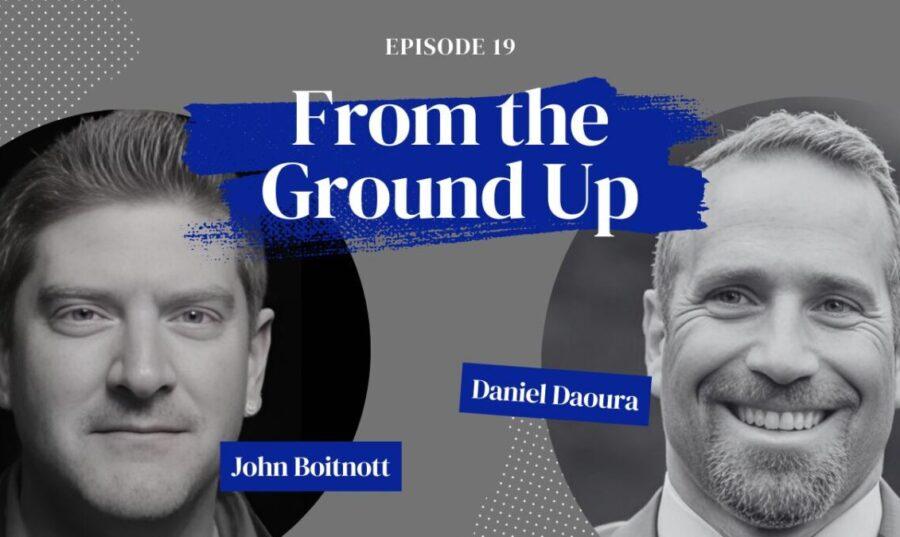Turn Down That Job Offer if You See Any of These 7 Red Flags

Job searches get old fast. They can feel like a part-time job all by themselves. When they get tiring, or when we get bored or desperate, we sometimes compromise our principles and take jobs that in hindsight, we know we shouldn’t have accepted.
I did this myself some years back. I had just finished a run at a social media startup and then joined another company that I thought would be a better fit. This turned out not to be the case. I burned a few bridges that took some years to build back up again.
These types of mistakes are natural, but avoidable. The next time you find yourself on the hunt for your elusive dream job, look out for these warning signs that you’re taking a job you’re not meant for.
1. Your salary negotiations require handfuls of Tums
You’ve hit the salary negotiation stage; suddenly, things get awkward. What you thought would be a straightforward experience is anything but, and you feel like maybe you’re being deceived. As long as your wage expectations are standard for the industry and commensurate with your expertise, you probably aren’t the one who’s in the wrong. The company might simply be undervaluing its employees. Carry on with this organization, and it’s likely to keep happening. Leopards don’t change their spots.
2. You feel sorry for the company’s customers
Like any smart job seeker, you’re going to check out your would-be employer’s reviews. If you find that the company treats clients poorly, keep in mind that’s how you’ll be treated, too. Even if you aren’t in the target demographic of its customer base, you should never turn a blind eye to bad behavior. Most organizations with a reputation for poor service are no better in the way they act toward team members, and they typically foster bad management practices.
3. The interview feels like ‘Mean Girls’
If the interview transports you to the drama of your high school years, you’d better believe it will continue when you join the company’s ranks. Gossip is nasty, but it’s particularly nasty when an interviewer is bad-mouthing a coworker to an outsider. It’s also an indication that immaturity runs rampant in an organization. You’ll never be able to trust your coworkers if they spread rumors and hold grudges.
One note of clarification: Don’t mistake transparency and honesty for gossip. If your interviewer is respectful and upfront about challenges the company is working on, that’s different.
4. You leave the interview unclear about your future there
When you ask an interviewer to talk about potential career paths and he or she stares at you blankly, get ready to say, “Thanks, but no thanks.” Because it’s hypothetical, this aspect of the job search can be the toughest to gauge. Consequently, many workers — especially younger workers — rely on recruitment companies and apps like TheWhether by Better Weekdays, kind of a HubSpot of inbound recruiting, to match their strengths and career paths with open job positions.
As TheWhether’s founder and CEO Chris Motley explains, “Gen Z and Millennial generations, in particular, expect to see that a company has clearly defined and executed on their purpose and the vision for their company culture, but candidates of all kinds should pay attention to whether a company is committing resources to this area of their recruitment marketing and development.”
5. Communication is incomplete or unclear.
In general, business these days is more informal than it used to be. Jeans are no longer reserved for the last Friday of the month. But, if you’re setting up an interview and the recruiter doesn’t mention whether you’re expected to wear a suit and tie or jeans and a polo, it’s a sign the company’s communications aren’t thorough enough.
Similarly, you might interview with someone you just don’t feel comfortable with. Trust your instincts: Your gut is trying to say that you need to protect yourself from making a big mistake.
6. The company has more turnovers than a bakery
Turnovers are delicious for breakfast, but you don’t want to see or hear about too many of them among an organization’s rank-and-file members. During your interview, find out how long employees tend to stick around. If everyone is new to their jobs, it’s possible that you’re coming in on the heels of a mass exodus. That’s not a good sign.
7. Your interviewer gives vague responses about the position
All you want to know is what you’ll be doing if you accept the role, and your interviewer can only hem and haw. Companies that care about long-term success have specific job descriptions, and they’re happy to share them with top candidates so everyone is on the same page when it comes to expectations.
RecruitLoop co-founder Paul Slezak recommends that interviewees ask about metrics associated with performance. He is especially fond of 30-day post-hire check-ins, which you can request during your interview process to keep everyone on track.
As he points out, “It’s even worth scheduling it in both your calendars from day one. That way, it won’t get overlooked.”
Looking for a new job is always stressful, but the more prepared you are, the better the experience will be. Keep an eye out for these red flags, even — and especially — when you’re frustrated with the search. Taking the wrong job will only frustrate you further.
This article originally appeared on Entrepreneur.com on November 14, 2017.



